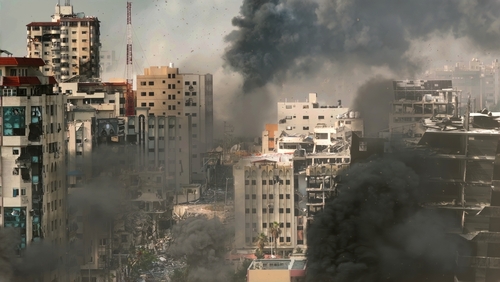In a dramatic development, Lebanese officials have revealed that Hezbollah leader Hassan Nasrallah had agreed to a temporary ceasefire just days before his assassination by Israel. According to Lebanon’s Foreign Minister Abdallah Bou Habib, Nasrallah had consented to a 21-day ceasefire that was brokered by the United States and France during the United Nations General Assembly held in late September 2024. The temporary truce, supported by leaders such as U.S. President Joe Biden and French President Emmanuel Macron, was part of an international effort to de-escalate the ongoing conflict between Hezbollah and Israel.
The Lebanese government, after consulting with Hezbollah leadership through Speaker Nabih Berri, agreed to the ceasefire and informed both American and French diplomats of the decision.
Hezbollah leaders:
💀 Hassan Nasrallah: Eliminated on September 27.
💀 Hassan Khalil Yassin: Appointed on September 28. Eliminated hours later.
💀 Hashem Safieddine: Appointed on October 1. Eliminated on October 3. pic.twitter.com/5AZDUR6SDL— Dr. Eli David (@DrEliDavid) October 4, 2024
Lebanese officials had also been assured by U.S. representatives that Israeli Prime Minister Benjamin Netanyahu had similarly agreed to the ceasefire. However, just days later, Nasrallah was killed in an Israeli airstrike on Beirut’s southern suburbs, a Hezbollah stronghold.
The strike that killed Nasrallah was reportedly part of a series of escalated Israeli operations targeting Hezbollah leaders and infrastructure. Despite the ceasefire arrangement, Netanyahu’s government continued with military operations, undermining the agreement. In fact, reports suggest that while Israeli officials initially indicated support for the ceasefire, Netanyahu later ordered military strikes to continue “with full force”. This assassination has intensified tensions in the region, as Hezbollah retaliated with rocket attacks targeting northern Israel.
🚨BREAKING: The IDF has officially released footage of Hezbollah’s terror tunnels in southern Lebanon.
Hezbollah planned to carry out another October 7th attack with over 6,000 Radwan Force troops, funded by Iran.
This is why Israel must annihilate Hezbollah, if anyone asks. pic.twitter.com/NDgcfCjtqp
— Vivid.🇮🇱 (@VividProwess) October 1, 2024
The assassination of Nasrallah, a key figure in Hezbollah since 1992, marks a critical escalation in the conflict between Israel and the Iran-backed militia. Hezbollah had been engaged in heavy cross-border military exchanges with Israel since 2023, following the outbreak of the Israel-Hamas war. The death toll has been severe, with more than 1,900 people killed in Lebanon since the fighting resumed.
Nasrallah’s killing also comes amid increasing Israeli concerns about Hezbollah’s growing military strength in southern Lebanon. The militant group, which has long positioned itself as a defender of Lebanese sovereignty against Israeli aggression, has faced international criticism for its involvement in the ongoing conflict.
In the wake of Nasrallah’s assassination, Israel has continued to conduct airstrikes across Lebanon, and tensions show little sign of abating. Lebanese officials, however, have expressed frustration with what they see as a violation of the ceasefire terms. Minister Bou Habib emphasized the need for U.S. mediation, though it remains uncertain whether Washington will intervene further in the rapidly deteriorating situation.
As the situation in Lebanon worsens, humanitarian concerns are also growing. United Nations officials reported that many displacement shelters in Lebanon are at full capacity, leaving civilians who have fled Israeli airstrikes to sleep in public parks and on the streets. Despite calls from various international actors for a de-escalation, the future remains uncertain as both sides continue to trade blows.

